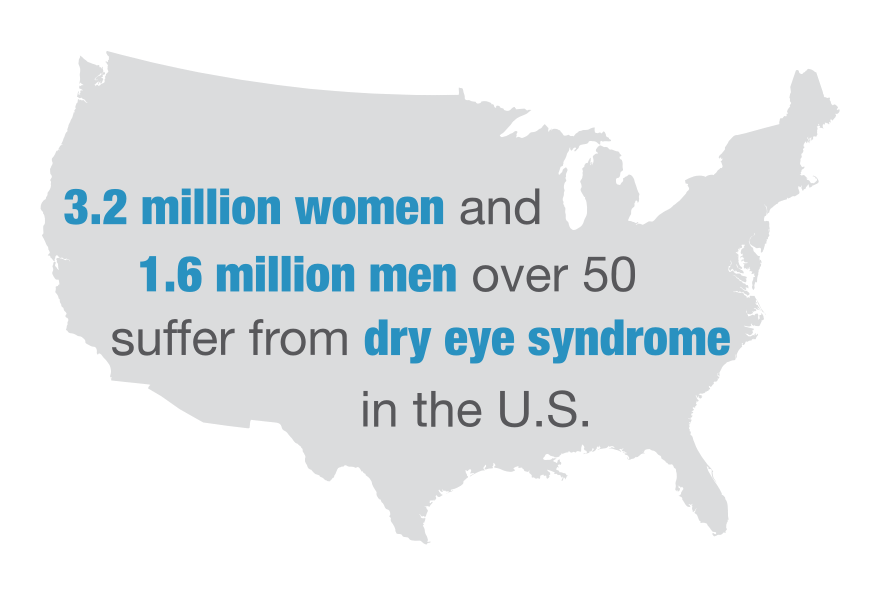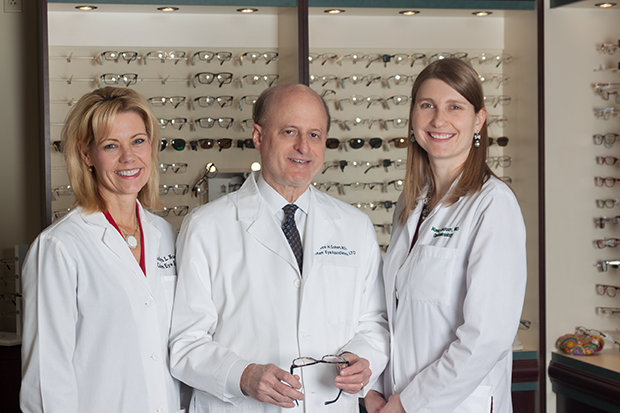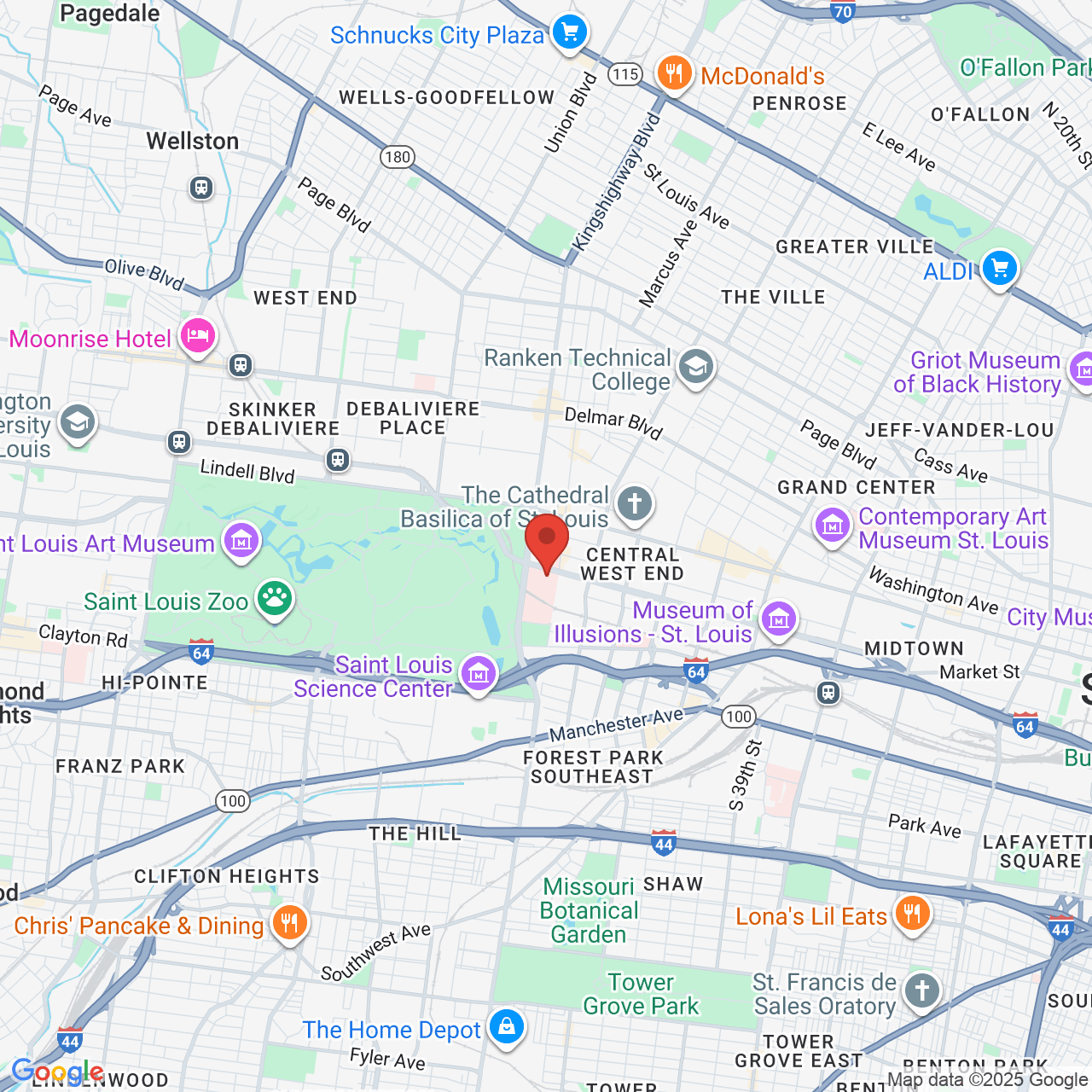
Dry Eye Treatment
What Is Dry Eye?
Tears help your eyes stay healthy and feel comfortable. If you are not producing enough tears or if you are producing poor-quality tears, it can cause a condition called dry eye.
Each time you blink, your eye gets covered by a tear film. This tear film consists of three layers:
- An oily layer produced by the meibomian glands. These glands produce oil that prevents tears from drying too quickly.
- A watery layer produced by the lacrimal glands. These glands produce water that washes away particles from the eyes.
- A mucus layer produced in the conjunctiva. The conjunctiva produces mucus that helps spread the watery layer over the surface of the eye, keeping it moist.
If these three layers are out of balance or if your eyes are not producing enough tears, it leads to dry eyes.
Need Dry Eye Treatment? Cohen Eye Associates Is Your Clear Choice for Better Vision
Without treatment, dry eye symptoms can eventually damage your cornea and impair your vision. Our doctors, ophthalmologist Bruce Cohen, MD, and optometrist Kathryn Noonan, OD, are highly regarded and experienced eye care professionals in the St. Louis area. They're experts at prescribing and implementing the most up-to-date dry eye treatments.
Schedule Your Consultation
If your eyes are always red, burning, itching, or watering, contact Cohen Eye Associates today, either online or by phone. We've made it quick and easy to set up an informative dry eye consultation. If you have questions, you can also email our office. Our doctors look forward to meeting you and discussing treatments at our comfortable and modern St. Louis, MO, office.
Call Us: (314) 361-5003

Insurance Coverage Not All Dry Eye Treatments Are Fully Covered by Insurance
- Some advanced treatments, like LipiFlow®, aren't covered and can cost around $700 to $900 per eye.
- We accept most HMO/PPO plans and our friendly staff will file claim forms on your behalf.
- We also proudly accept affordable financing through CareCredit® for qualified patients, and we accept all major credit cards.
- At Cohen Eye Associates in St. Louis, we believe that everyone whose life is affected by uncomfortable, dry eye disease should receive the treatment they need, despite financial issues.
"They Will Go the 'Nine Yards' and Beyond"
Always the care is superior and very considerate. The staff has an excellent working relationship with one another that is felt by the patients. They will go the "nine yards" and beyond. Every question is answered thoroughly. I would recommend this practice as the best in St. Louis!
View On GoogleDr. Cohen is an excellent clinician with decades of experience who truly cares about his patients. My husband and I are blessed to have Dr. Cohen taking great care of us and our eyes. Thank you.
View On Google
What Causes Dry Eye?
Many Factors Can Cause You to Have Dry Eyes
Blocked Tear Ducts
Did you know that watery eyes can be a symptom of dry eyes? Blocked or malformed tear ducts can cause your tear-producing lacrimal glands to work twice as hard to moisten your eyes, resulting in excessive tearing.
Medication
Allergy medicine, birth control pills, antidepressants, and other types of medication can reduce your body's ability to produce lubricating tears.
Eyelid Conditions
Eyelid diseases, like blepharitis or meibomian eyelid gland dysfunction, decrease the lubricating oil in your tears. These conditions can cause eyelid irritation and reduced tear production.
Lack of Blinking
Staring for hours at a computer, cell phone, or TV screen can reduce the natural tendency to blink. Blinking is an important function that distributes moisturizing tears across the surface of the eyes.
Dry Climates
Living in low-humidity climates, as well as windy, dusty locations, can cause irritating symptoms and chronic dry eyes.
Age/Gender
Studies show that adults over 50, particularly women, are at a higher risk of developing dry eye symptoms than younger people.
Diet
Not enough Vitamin A (carrots, broccoli) or Omega-3 fatty acids (fish, nuts, oils) can affect the lubricating quality of your tears. It's also important to stay hydrated.
Illness
Diseases such as lupus, rheumatoid arthritis, thyroid issues, and diabetes may contribute to dry eyes.
Contact Lenses
Contact lenses can prevent lubricating tears from moistening the surface of your eyes. Studies show that over 50 percent of contact lens wearers need treatment such as eye drops to relieve dry eyes.
How Common Is This Condition?
Our Practice Also Uses TearLab to Diagnose Dry Eye

TearLab® is an advanced diagnostic system that measures the osmolarity of human tears to diagnose dry eye.
Osmolarity is a key indicator of your ocular surface health. Abnormal osmolarity could indicate poor quality tear film and dry eye disease.
During a TearLab exam, our doctors will collect a small sample of tear fluid from the eyelid margin (the edge of your eyelid) using the TearLab Osmolarity Test Card. After collecting the sample, the card will be placed in our TearLab Osmolarity System. The unit will calculate and display the osmolarity test result in mere seconds. TearLab is incredibly precise and has a positive predictive value (the probability that a patient with a positive test truly has the disease) of 89%.
In addition to diagnosing dry eye, we also use TearLab to monitor your progress following dry eye treatment.
Schedule Your Dry Eye Exam Today Contact Cohen Eye Associates, Limited
Dry eye syndrome can make it difficult to drive, read, use the computer, or go outside and enjoy nature.
If you are suffering from dry eyes, don't delay. Visit Cohen Eye Associates, Limited, in St. Louis, MO to receive a dry eye diagnosis and learn more about your treatment options.
Bruce H. Cohen, MD, and Kathryn L. Noonan, OD, offer the latest dry eye treatments and can help you find an option that works for your needs and lifestyle.
To schedule an eye exam, request an appointment online or call us:
(314) 361-5003
"A Great Experience"
The staff is helpful and knowledgeable. I like my doctor and this location..
View on GoogleActually was taken in early - from there everything was handled efficiently and professionally, ending with the exam by Dr Cohen. Overall, a great experience.
View on GoogleSee How Dry Eyes Can Be Treated
LipiFlow: A painless, In-Office Treatment

Surgical Options
Surgical treatment for dry eye disease is rare. But if needed, your doctor may suggest:
- Permanently closing your tear ducts so moisturizing tears don't drain away
- Tightening drooping lower eyelids to prevent excessive drainage of tears
- Plastic surgery to adjust your eyelids so they close completely when you blink, allowing for maximum tear distribution
"Very Impressed" Read More Reviews
My doctor is wonderful, very thorough and personable as well as the office staff.
View on GoogleGreat office and great doctors. I have seen both Dr. Cohen and Dr. Noonan. I am very impressed with them, as well as all the staff. I feel confident in their expertise.
View on Google
FAQs about Dry Eye
How much does it cost to treat dry eye?
The cost of your dry eye treatment will depend on which treatment you need. While some dry eye treatments are covered by insurance, others are not. To make dry eye care affordable on any budget, our St. Louis, MO, office accepts insurance and offers flexible financing options. During your consultation, we will review the costs of treatment to help you budget. Because leaving dry eye untreated can compromise your ocular health and require more expensive treatments, seeing an eye doctor as soon as possible can help you save money in the long run.
How do you treat dry eye?
Your treatment for dry eye will depend on the cause of your dry eye. Treatments for dry eye include artificial tears, punctal plugs, prescription eye drops, ointments, warm compresses, eyelid scrubs, or LipiFlow.
Does dry eye go away?
If you suffer from chronic dry eye, your symptoms will get better or worse, but they will not go away without proper treatment.
What can cause dry eyes?
Dry eye can be caused by hormonal changes as you get older, certain medical conditions, including rheumatoid arthritis, Sjörgen's syndrome, thyroid disease, and lupus, wearing contact lenses for an extended period of time, staring at a computer screen or phone screen for prolonged periods of time, and certain medications.
Does LASIK cause dry eye?
Undergoing a refractive surgery such as LASIK can increase your risk of dry eye. However, the symptoms are more noticeable immediately after surgery and tend to get better after a few months.
Is dry eye syndrome preventable?
There are certain things that you can do to prevent symptoms of dry eye. Avoid using a hairdryer, use an air humidifier, wear glasses when it's windy outside, and make sure you eat plenty of omega-3 fatty acids.
Are there any natural treatments for dry eye?
To alleviate the symptoms of dry eye at home, you can apply a warm compress, massage your eyelids, or take omega-3 fatty acid supplements. In some cases, our doctors can help you find relief from dry eye syndrome by prescribing a special formula of omega-3 fatty acids.
Find Out Which Treatment Is Right for You
While simple solutions such as lifestyle changes or artificial tears may alleviate dry eye symptoms for some patients, other patients might need medication or surgery to alleviate dry eye. To find out which type of dry eye care is right for you, request an appointment online or call us at (314) 361-5003.
"High-Quality Service and Care"
Dr. Cohen is the best. He discovered that I had carotid artery disease, which saved me from having a stroke and/or going blind. Now he has given me hope to regain lost vision. He is my hero.
View on GoogleI have been a patient for several years and have witnessed consistently high quality service and care throughout this time period.
View on GoogleThe Risks of Leaving Dry Eye Untreated
Dry eye is not only uncomfortable; left untreated, it can lead to more serious ocular diseases. Some of the risks of untreated dry eye include:
- Corneal Ulcers: When there aren't enough tears to protect the cornea against bacteria and viruses, it can lead to infection and corneal ulcers.
- Conjunctivitis: Conjunctivitis is an inflammation of the conjunctiva—the layer of cells that covers the eyeball.
- Contact Lens Issues: Dry eyes can make it impossible to comfortably wear contact lenses and require you to wear glasses all the time.
- Blurry Vision: Blurry vision from dry eye syndrome can make it difficult to read or drive. It can also make everyday tasks more dangerous.
Because dry eye can make it difficult to do the things you love, it can also lead to depression. For this reason, it is essential that you speak to an eye doctor who can recommend the right therapy.








